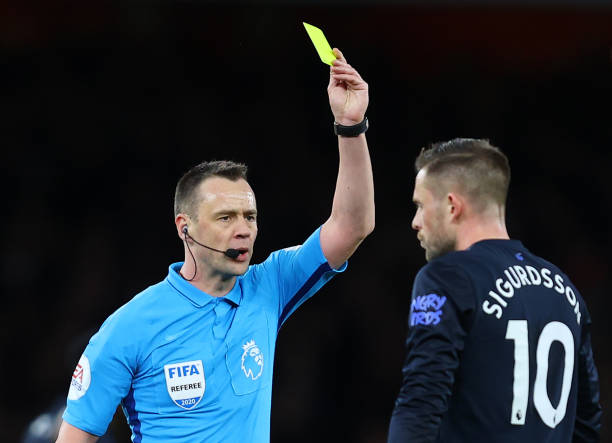Though it didn’t affect the result, the first-half stoppages in Arsenal’s clash with Everton on Sunday proved the additional time system just doesn’t work.
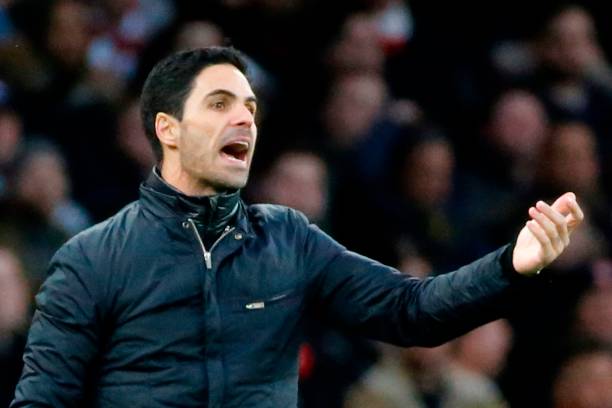
I’m certainly not the first to suggest there’s a problem with the current system for additional time in football. It seems like every year there are new rule changes aiming to cut down on time-wasting.
Most recently, we had the addition of a rule requiring substitutes to leave the pitch at the nearest point. Though the referees don’t always enforce it, that’s clearly a better system than waiting for the right-winger at the corner flag to cross half the pitch.
At the same time, IFAB changed the rules on goal-kicks, no longer needing the ball to leave the box. In part, this was to address players deliberately stepping into the box to get a retake and waste time.
These small changes all miss the central problem, for me. The real issue is that we just don’t add on as much time as we should, highlighted by the bizarre end to Arsenal’s first half on Sunday.
“Five added minutes”
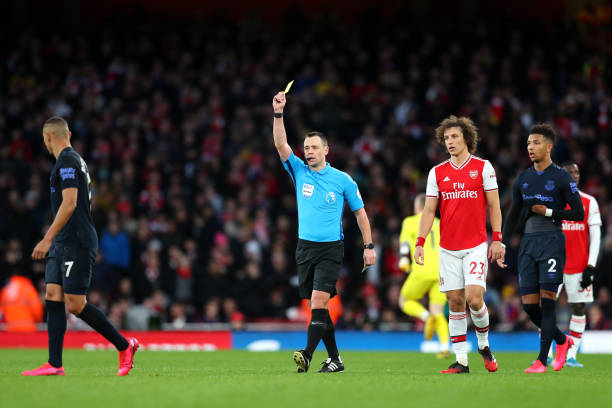
At the end of the first 45 minutes, the fourth official indicated a minimum of five minutes of additional time. An injury to Sead Kolasinac was the main reason for such a large amount of stoppage time, understandably so.
Not long into the five minutes though, Richarlison committed a bad foul on Dani Ceballos. The Arsenal players surrounded him and the referee took a while to get the game under control. In the end, one minute and 55 seconds passed before he restarted play.
Not long afterwards, Richarlison scored. This led to another one minute and seven seconds wasted. Other stoppages like corners and throw-ins added up to another 43 seconds.
In total, this makes 3 minutes and 45 seconds. If you ignore the minor stoppages and only focus on the goal and the lengthy argument, it’s 3 minutes and two seconds.
Either way, the referee took no interest, ending the game before the original five minutes were even over. He blew his whistle after four minutes and 58 seconds.
This means only one minute and 13 seconds of the five additional minutes involved actual football. 24%.
The second half
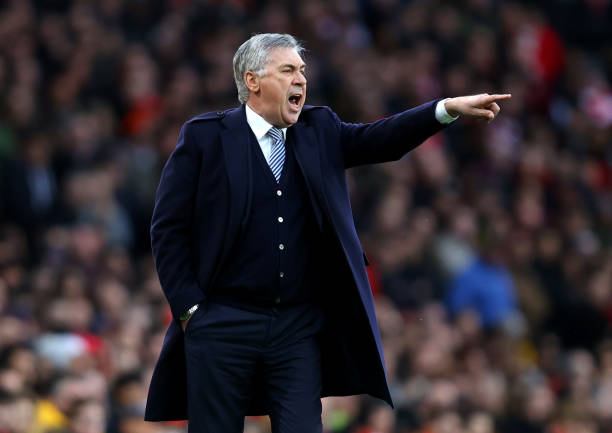
For the sake of balance, let’s take a look at the second period, where Arsenal were trying to grind down the time to secure a 3-2 victory.
In the second half, the referee decided to add on five minutes again. This time, there were no goals or brawls during that additional time period, with the longest stoppage the 40 seconds between Aubameyang winning a free-kick and Arsenal taking it.
All the same, the ball wasn’t in play for two minutes and 22 seconds. Arsenal were taking their time over every throw-in and goal kick, which all added up.
The referee played an extra 18 seconds this time before blowing his whistle.
Why did almost four minutes of stoppages result in two seconds of injury time being knocked off in the first half? Why did the lesser second-half stoppages result in a small amount of additional time being added?
There’s no answer to those questions. It’s simply down to the referee’s whims at that moment in time.
Change the system
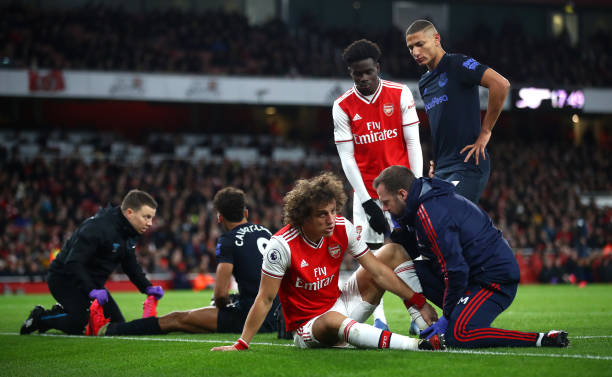
To address this problem, the first thing I’d do is take the job of calculating additional time out of the referee’s hands.
Refereeing is a hard job, particularly when a group of 10 or so players suddenly decide to start a fight. You’re busier trying to break them up and spot any offences rather than starting your stopwatch.
In the VAR era, where you’re in conversation with the folks at Stockley Park after a goal trying to establish if there were any infringements, maybe you don’t always remember to add time on for that as well.
The fourth official is perfectly capable of calculating the time on their own. They’re in contact with the referee to find out the additional time anyway, they could simply reverse roles and inform the referee what the added time comes to instead.
That’s the easy change they could make tomorrow if they wanted to. Past that, we’re looking at a radical overhaul.
Option 1 – Stop the clock
One option is to go with the rugby route of stopping the clock. Time-wasting becomes pointless at that stage, but it does rob a little of the fluidity and drama from proceedings.
Plus, the length of a game would have to change pretty significantly. Right now, between 50 and 60 minutes of actual football is played in your average 90-minute match, thanks to all the minor stoppages adding up.
If we stopped the clock, the length of a game would have to come down to reflect that.
Option 2 – Set (and adhere to) stricter guidelines
Another option would be to have a set amount of time allowed for certain incidents. For example, 15 seconds for a goal-kick, 10 seconds for a throw-in, and so on. Any time wasted over these minimums gets added to the additional time total.
That takes the subjectivity out of it. There’s no decision for the human beings in charge to make about whether that free-kick really wasted enough time to add more on.
Personally, this is the way I’d go with it. It allows us to stick with the current system for the most part, and it doesn’t leave us with two-hour matches – as long as we get the minimums right.
At the same time, it removes the incentive to take another 20 seconds over a goal-kick once that initial 15 is up. Unlike the stop-clock option, this might actually speed the game up.
The main argument I can see against this option is that it’s more complicated.
The person in charge of time-keeping has to pay attention to what the stoppage is for and adjust their added-time accordingly. Perhaps we’d need to add an extra official whose sole job was to take care of time.
Whatever the solution is, we can’t continue to stick with a system where we only play 24% of added time and everyone is just okay with that.

